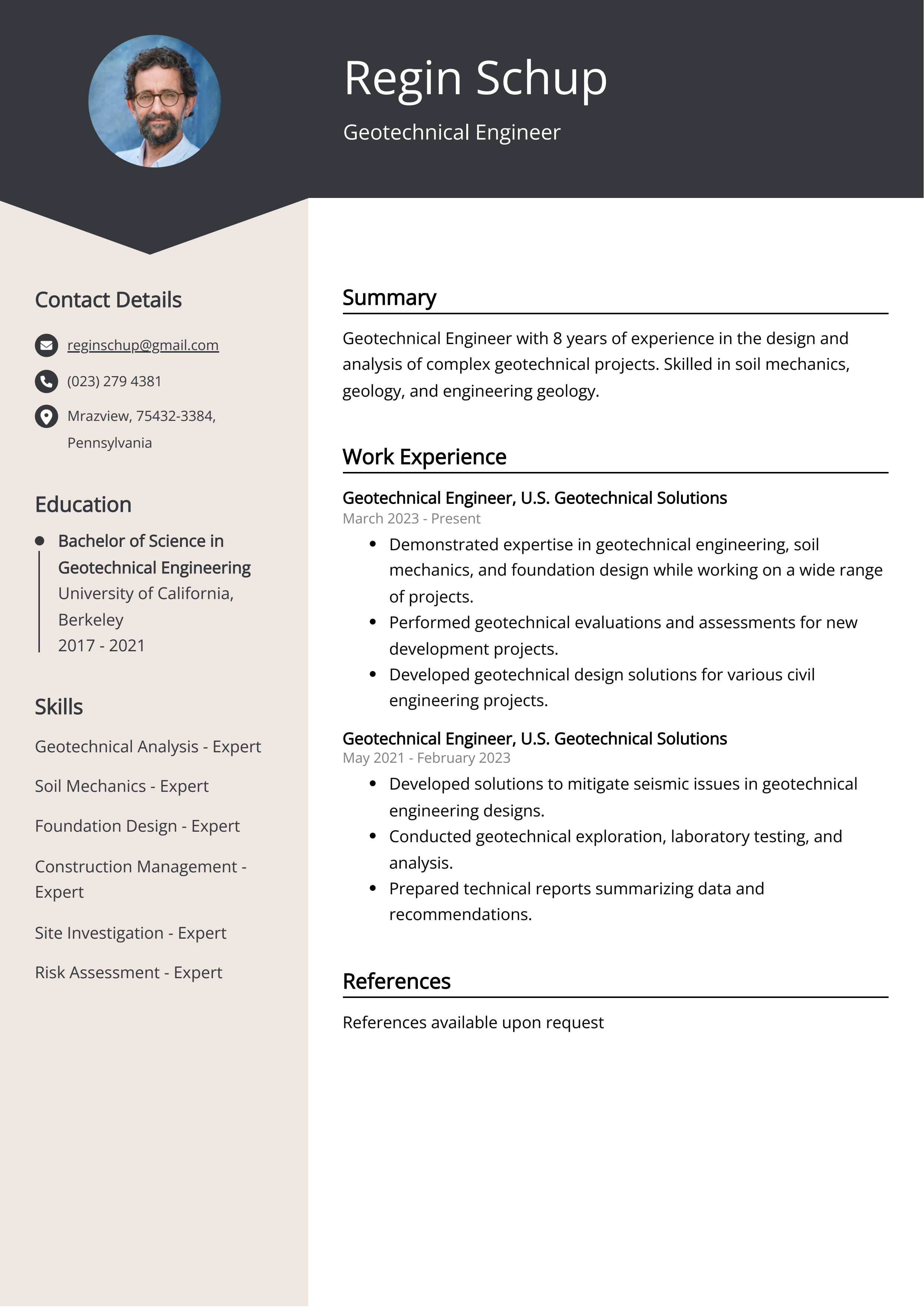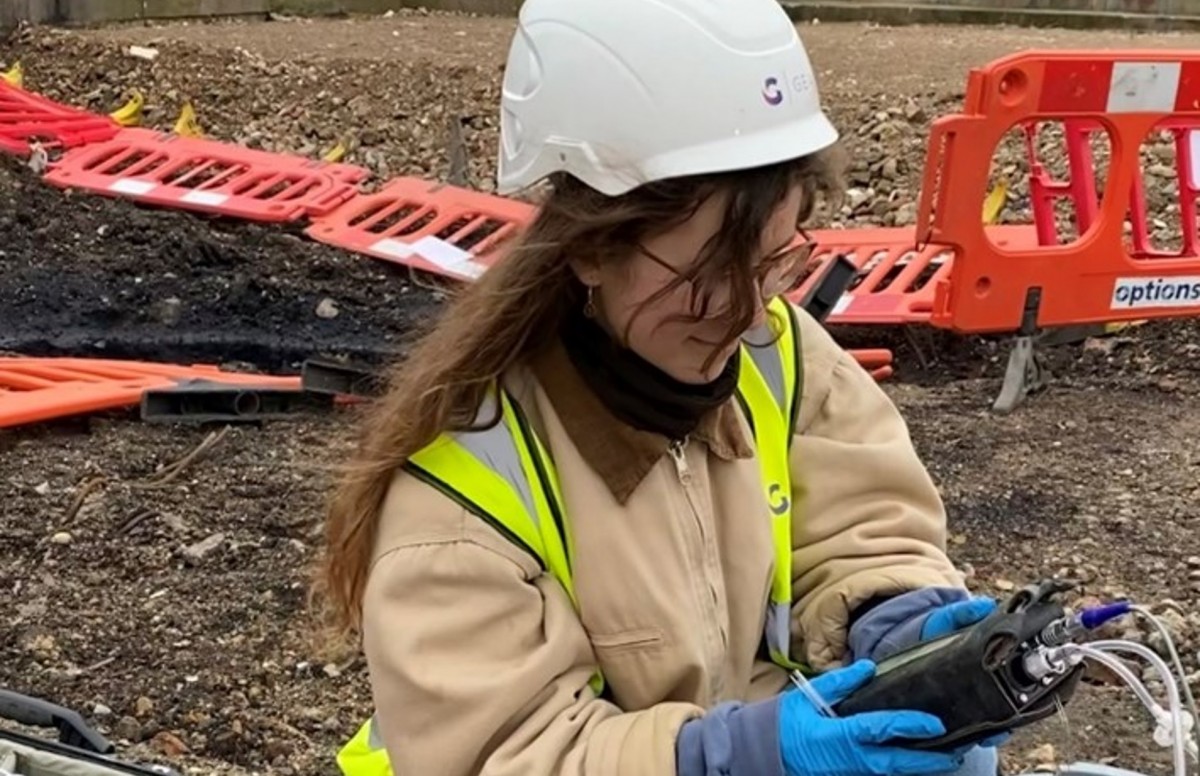Some Known Details About Geotheta
Table of ContentsGet This Report on GeothetaThings about GeothetaThe Greatest Guide To GeothetaAn Unbiased View of GeothetaFacts About Geotheta Revealed

They carry out site investigations, collect samples, carry out lab examinations, and evaluate information to review the suitability of the ground for building projects - Consulting Engineer. Based upon their findings, geotechnical designers provide recommendations for foundation design, slope security, retaining structures, and mitigation of geotechnical threats. They collaborate with other experts, such as engineers, architectural engineers, and building and construction teams, to guarantee that geotechnical considerations are integrated right into the total job layout and application
By evaluating the habits and buildings of soil and rock, they can determine possible geotechnical risks such as landslides, soil settlement, or incline instability. Their experience aids avoid failings or mishaps that might threaten lives and building. Right here are some in-depth tasks and obligations of a geotechnical designer: Website Examination: Geotechnical engineers conduct site investigations to collect information on subsurface problems.
They translate the information to comprehend the properties and actions of the dirt and rock, including their stamina, permeability, compaction features, and groundwater conditions. Geotechnical Evaluation and Style: Geotechnical engineers evaluate the information accumulated throughout site examinations to evaluate the security and suitability of the website for construction projects. They do geotechnical computations and modeling to evaluate elements such as birthing capability, negotiation, slope security, lateral earth pressures, and groundwater circulation.
See This Report about Geotheta
Foundation Style: Geotechnical designers play an important role in making foundations that can securely support the intended structure. They examine the soil conditions and lots needs to figure out the proper structure type, such as superficial structures (e.g., grounds), deep foundations (e.g (https://www.tripadvisor.in/Profile/geotheta1)., stacks), or specialized techniques like soil enhancement. They take into consideration elements such as settlement restrictions, birthing capability, and soil-structure communication to develop optimal foundation styles
They evaluate building plans, display site activities, and conduct field inspections to confirm that the layout suggestions are followed. If unforeseen geotechnical problems arise, they examine the circumstance and give recommendations for remediation or changes to the design. Risk Analysis and Reduction: Geotechnical engineers assess geotechnical hazards and threats linked with the project website, such as landslides, liquefaction, or soil erosion.

Collaboration and Communication: Geotechnical engineers function carefully with various other experts associated with a job, such as engineers, architectural engineers, and building and construction teams. Reliable interaction and cooperation are necessary to incorporate geotechnical considerations right into the general job layout and building process. Geotechnical engineers offer technical experience, answer questions, and guarantee that geotechnical requirements are fulfilled.
Not known Facts About Geotheta
Below are some types of geotechnical engineers: Structure Engineer: Structure designers concentrate on developing and evaluating structures for frameworks. They assess the soil conditions, tons needs, and site features to figure out one of the most proper foundation type and layout, such as shallow foundations, deep foundations, or specialized techniques like heap structures.
They assess the variables affecting slope security, such as dirt homes, groundwater conditions, and incline geometry, and create techniques to stop slope failures and alleviate dangers. Quake Engineer: Earthquake engineers focus on assessing and developing structures to stand up to seismic pressures. They analyze the seismic risk of a site, review soil liquefaction possibility, and create seismic style requirements to guarantee the safety and strength of frameworks during quakes.
They perform area screening, gather examples, and examine the collected information to characterize the dirt properties, geologic formations, and groundwater conditions at a website. Geotechnical Instrumentation Designer: Geotechnical instrumentation designers concentrate on surveillance and gauging the actions of dirt, rock, and structures. They mount and maintain instrumentation systems that keep an eye on elements such as soil settlement, groundwater levels, incline motions, and structural displacements to examine performance and supply very early cautions of possible issues.
Geotheta Fundamentals Explained
They conduct examinations such as triaxial tests, debt consolidation examinations, straight shear tests, and permeability examinations to gather information for geotechnical evaluation and layout. Geosynthetics Engineer: Geosynthetics designers focus on the design and application of geosynthetic materials, such as geotextiles, geogrids, and geomembranes. They utilize these materials to boost soil security, reinforce slopes, give drainage solutions, and control disintegration.
They often tend to be investigatory people, which indicates they're intellectual, reflective, and analytical. They are curious, methodical, sensible, analytical, and rational. Several of them are additionally social, meaning they're kind, generous, cooperative, person, caring, handy, understanding, sensible, and friendly. Does this sound like you? Take our cost-free career examination to locate out if geotechnical engineer is among your top profession suits.
In the office environment, geotechnical designers utilize specialized software tools to perform estimations, develop layouts, and analyze data. They prepare records, testimonial task specifications, communicate with clients and employee, and coordinate project tasks. The workplace setup offers Our site a favorable setting for study, analysis, and partnership with various other specialists involved in the project.
All About Geotheta
They regularly check out project sites to carry out website examinations, assess geotechnical problems, and gather data for evaluation. These sees involve traveling to different locations, in some cases in remote or challenging terrains. Geotechnical designers may perform dirt tasting, conduct examinations, and monitor construction tasks to make sure that the geotechnical facets of the task are being implemented properly.
Geotechnical designers also function in specialized geotechnical laboratories. Geotechnical lab designers function thoroughly in these environments, taking care of screening tools, operating tools, and videotaping data.